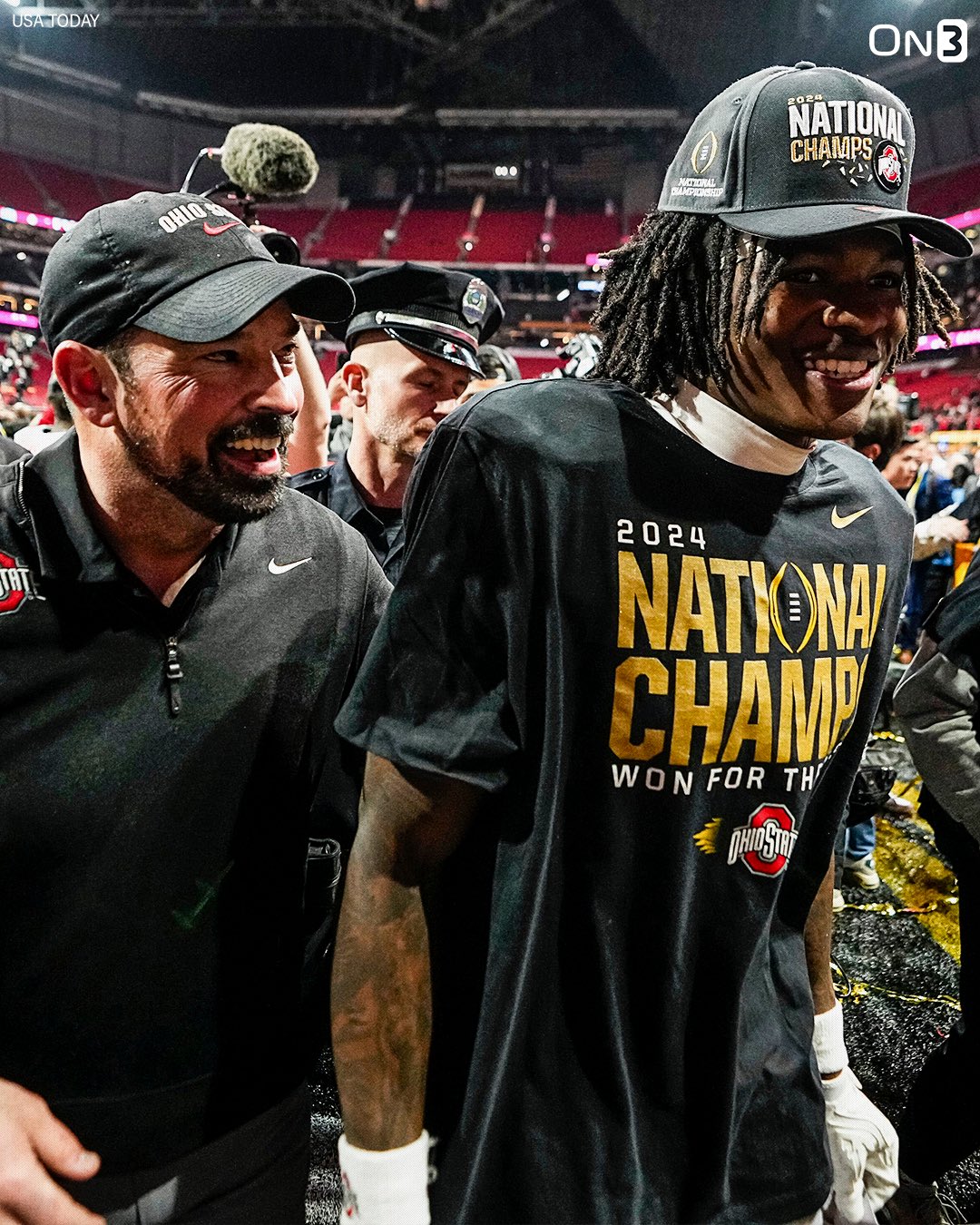Ryan Day Calls for Enforcement: “Everything is So Gray Right Now”
The world of college football is in the midst of a seismic shift, with the introduction of Name, Image, and Likeness (NIL) deals and the NCAA transfer portal reshaping the landscape of the sport. These changes have brought incredible opportunities for players to benefit from their talents and marketability, but they have also introduced complexities that have left many coaches, including Ohio State head coach Ryan Day, calling for clearer enforcement and guidelines.
In a recent discussion, Day voiced his concerns, emphasizing the need for structure and consistency in how these evolving elements are handled. “As coaches, we’re all looking for more guidelines on this,” Day said. “Everything is so gray right now.” His remarks highlight the growing frustration among coaches who are tasked with navigating the uncertain waters of NIL deals and the transfer portal while trying to maintain competitive balance and fairness.
When NIL rules were introduced in 2021, it marked a groundbreaking moment in college sports. Athletes could finally profit from their personal brands, signing endorsement deals, participating in sponsorships, and monetizing their social media platforms. While this development was a win for players, it quickly became clear that the implementation of NIL lacked the necessary guardrails to ensure fairness and transparency.
For coaches like Ryan Day, the lack of uniformity in NIL regulations across conferences and states has created challenges. Some programs have leveraged NIL opportunities to attract recruits or retain players in ways that skirt the spirit of fair competition. Without a cohesive set of rules, the line between permissible benefits and improper inducements becomes increasingly blurred.
Day’s concerns are echoed across the college football landscape. Coaches worry that NIL, without proper enforcement, could lead to a bidding-war culture where financial incentives overshadow the core principles of recruiting and player development. The need for clear, enforceable guidelines is critical to preserving the integrity of the sport while allowing athletes to benefit from their hard work and talent.
In addition to NIL, the transfer portal has added another layer of complexity. Designed to give players more freedom to move between schools, the portal has transformed college football into a more fluid and dynamic environment. However, this increased player mobility has brought challenges, including roster management and concerns about tampering.
Day pointed to the portal as another area where greater enforcement is needed. “There has to be a way to ensure we’re all operating under the same set of rules,” he said. The ease with which players can enter the portal and the influence of NIL deals in their decisions have led to a growing perception that some programs may be exploiting loopholes.
For coaches, this creates an environment where stability is harder to achieve. Roster turnover is at an all-time high, and the lack of consistent guidelines exacerbates the difficulty of building and maintaining a cohesive team. Day’s plea for more structure reflects the need to address these issues head-on, ensuring that the portal serves its intended purpose without undermining the competitive balance of college football.
It’s important to note that Ryan Day is not against NIL or the transfer portal. In fact, he has been an advocate for providing players with opportunities to benefit from their abilities and to have greater control over their futures. However, his call for enforcement underscores the importance of balancing these opportunities with the need for structure and fairness.
The NCAA has faced criticism for its slow response to these challenges. While there have been efforts to provide more clarity on NIL and transfer portal policies, many believe the organization must take a more proactive approach. Coaches like Day are pushing for national standards that would apply to all programs, creating a level playing field and reducing the confusion that currently exists.
As college football continues to evolve, the voices of coaches like Ryan Day will be instrumental in shaping the future of the sport. His call for more guidelines reflects a broader sentiment within the coaching community: the need for consistency, transparency, and fairness.
For players, the opportunities presented by NIL and the transfer portal are transformative. These changes have empowered athletes in ways that were unimaginable just a few years ago. However, without proper enforcement and clear guidelines, the potential for abuse and imbalance threatens to overshadow the progress that has been made.
Ryan Day’s concerns are a reminder that the success of college football’s new era depends on finding the right balance. It’s a challenge that will require collaboration between coaches, administrators, and the NCAA to ensure that the sport remains both competitive and equitable. As Day put it, “We all want what’s best for the game, but we need more clarity to get there.”
The road ahead may be uncertain, but with leaders like Day advocating for change, there is hope that college football can navigate this new landscape while preserving the traditions and integrity that make it so special.
